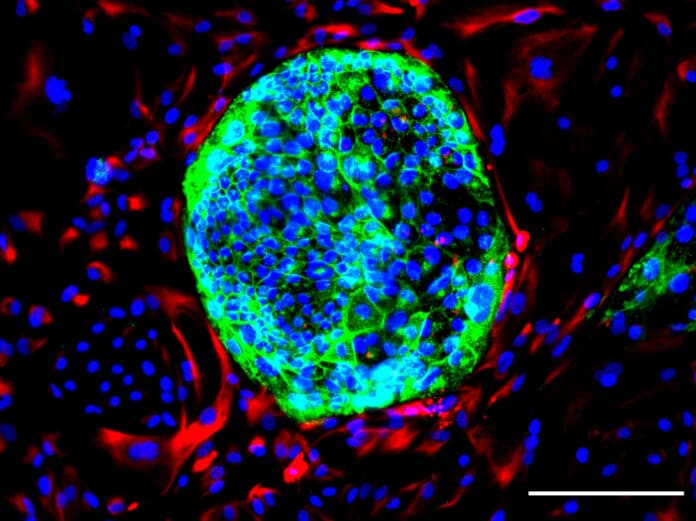Scientists have previously created stem cell models for numerous embryonic and extraembryonic cell types to investigate human development in a dish. KU Leuven stem cell biologists have created a new human cell type in the lab using stem cells. The cells mimic early human embryonic counterparts found in nature very closely.
The team has come up with the first model for a specific type of human embryo cells: extraembryonic mesoderm cells. These cells contribute to the formation of the early umbilical cord, produce the first blood in an embryo, and assist in securing the embryo to the future placenta.
Professor Vincent Pasque at KU Leuven said, “In humans, this type of cell appears at an earlier developmental stage than in mouse embryos, and there might be other important differences between species. That makes our model especially important: research in mice may not give us answers that also apply to humans.”
The scientists used human stem cells, which can still differentiate into various embryonic cells, to create their model cells. The new cells are a useful model for that particular cell type since they closely match their natural counterparts in human embryos.
Pasque noted, “You don’t make a new human cell type every day. We are excited because we can now study processes that normally remain inaccessible during development. The model has already enabled us to find where extraembryonic mesoderm cells come from. In the longer term, our model will hopefully also shed more light on medical challenges such as fertility problems, miscarriages, and developmental disorders.”
Journal Reference:
- Thi Xuan Ai Pham, Amitesh Panda, et al. Modeling human extraembryonic mesoderm cells using naive pluripotent stem cells. Cell Stem Cell. DOI: 10.1016/j.stem.2022.08.001
